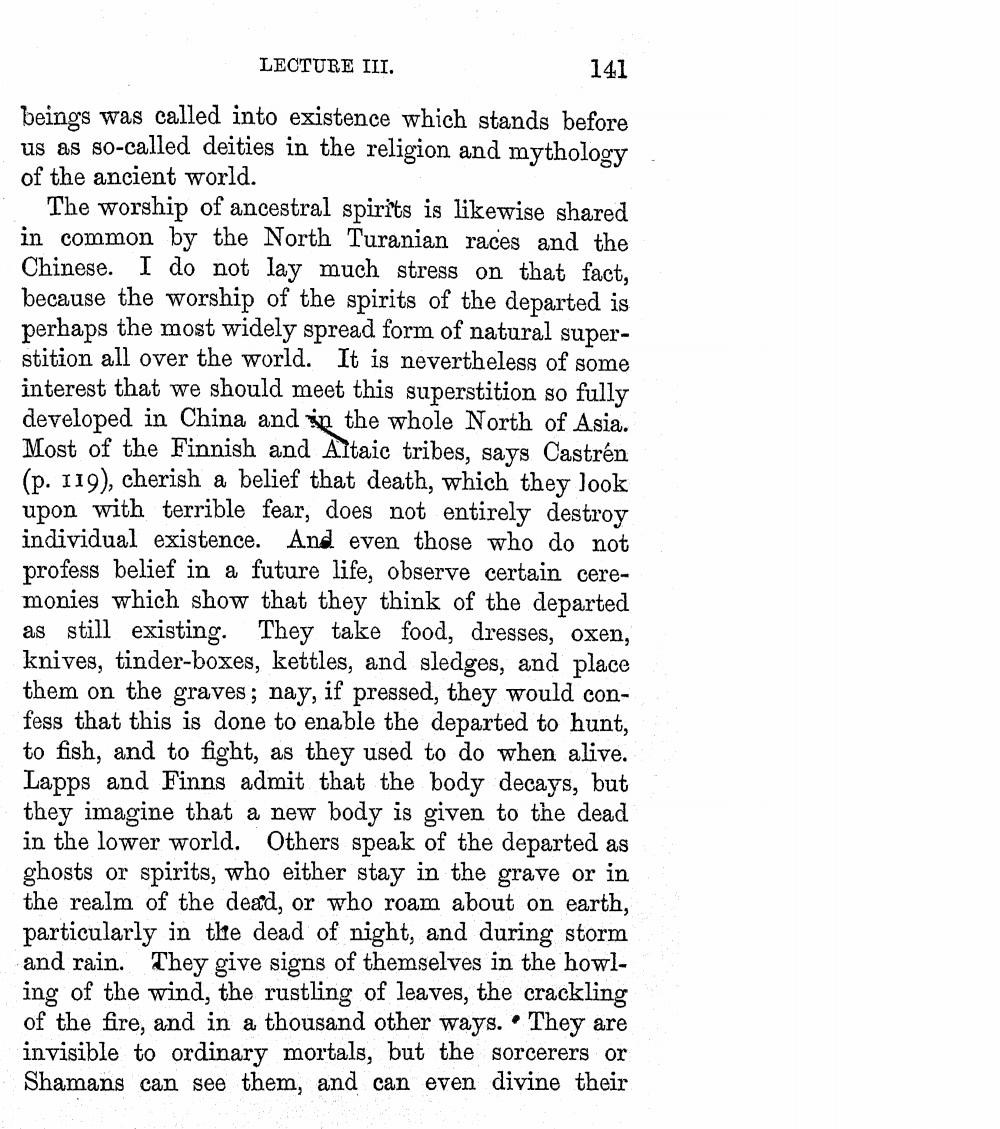________________
LECTURE III.
141 beings was called into existence which stands before us as so-called deities in the religion and mythology of the ancient world.
The worship of ancestral spirits is likewise shared in common by the North Turanian races and the Chinese. I do not lay much stress on that fact, because the worship of the spirits of the departed is perhaps the most widely spread form of natural superstition all over the world. It is nevertheless of some interest that we should meet this superstition so fully developed in China and in the whole North of Asia. Most of the Finnish and Altaic tribes, says Castrén (p. 119), cherish a belief that death, which they look upon with terrible fear, does not entirely destroy individual existence. And even those who do not profess belief in a future life, observe certain ceremonies which show that they think of the departed as still existing. They take food, dresses, oxen, knives, tinder-boxes, kettles, and sledges, and place them on the graves; nay, if pressed, they would confess that this is done to enable the departed to hunt, to fish, and to fight, as they used to do when alive. Lapps and Finns admit that the body decays, but they imagine that a new body is given to the dead in the lower world. Others speak of the departed as ghosts or spirits, who either stay in the grave or in the realm of the dead, or who roam about on earth, particularly in the dead of night, and during storm and rain. They give signs of themselves in the howling of the wind, the rustling of leaves, the crackling of the fire, and in a thousand other ways. They are invisible to ordinary mortals, but the sorcerers or Shamans can see them, and can even divine their




